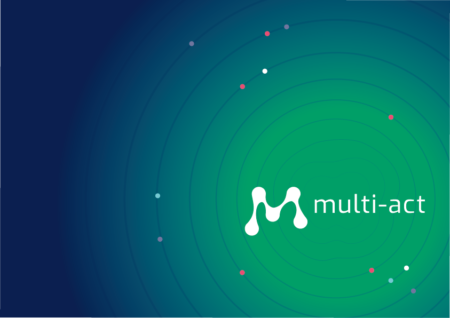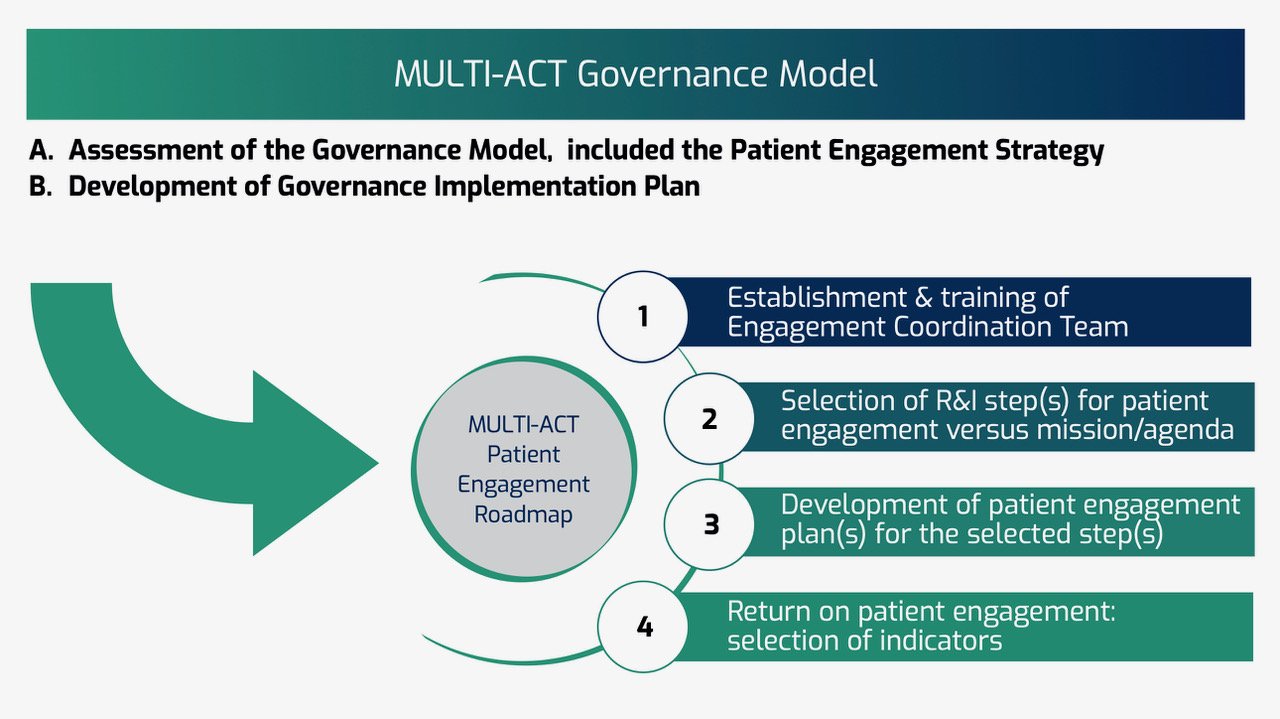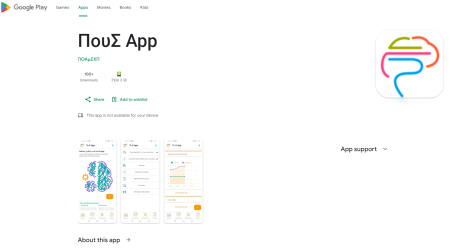
MULTI-ACT Patient Engagement Guidelines
28.05.2020Guest author: Paola Zaratin on behalf of MULTI-ACT consortium
Responsible Research Innovation (RRI) argues that excellence, validity and relevance are connected by engaging patients and society in the research continuum as key stakeholder with decision making role.
MULTI-ACT, a three-year project funded within the European Union’s H2020 Science with and for Society Program, aims to contribute to the adoption of the RRI vision and principle in health research.
The project is coordinated by the Italian Multiple Sclerosis Society Foundation, a “boundary organization” between science and patients’ member of the MS International Federation and European MS Platform. The European Multiple Sclerosis Platform is one of the member of the MULTI-ACT Patient Forum and provides advice and suggestions along the implantation of the project.
MULTI-ACT has developed a strategic Collective Research Governance and Sustainability Model in the area of brain diseases by using Multiple Sclerosis as the first case study. The mission-oriented research is the explicit driver for co-accountability approach developed by MULTI-ACT project. Starting from the agenda of Multi-stakeholder MS Initiatives, this model will be applicable in defining the scope of health research as well as new metrics for the evaluation of the impact of research.
As someone affected by brain disorders, including multiple sclerosis, your experiences living with the disease can add valuable insights and information to Multi-stakeholder Research Initiative. This unique personal knowledge and experience, or experiential knowledge, can be applied to many stages of research and innovation, from planning a research project to reporting its results. While collecting patient data has always been important in MS research, more fully engaging patients and caregivers in all relevant decision-making stages of a project can enrich the research, enhance its relevance, and ensure that a research initiative reflects the goals, or outcomes, that matter most to people affected by MS.
The purpose of the MULTI-ACT guidelines is to provide a framework to standardize and facilitate full patient engagement in research programs and projects: to enable science with and of patient input.
Science WITH patient inputs occurs when patients meaningfully and actively collaborate in the governance, priority setting, and conducting of research, sharing, and applying the results.
Science OF patient inputs occurs when data of people with a disease are used (active and passive contribution) to evaluate the impact of R&I.
MULTI-ACT provide a roadmap to engage patients in the Research & Innovation phases relevant to meet the mission of a multi-stakeholder initiative (mission-driven approach) within the Multi-stakeholder Research Initiatives that apply MULTI-ACT Governance Model and related criteria.

The MULTI-ACT Patient Engagement roadmap relies mainly on three key assets:
- The innovative MULTI-ACT Governance Model for collaborative initiatives and the Engagement Coordination Team.
- MULTI-ACT Training module® focused on how to empower patients and stakeholder to cooperate and to bring their experiential knowledge into the R&I continuum, complementing existing training to make patients “experts”;
- the importance of understanding and measuring the impact of R&I on outcomes that matter to patients.
The MULTI-ACT Framework is designed to mitigate the risk of patient underrepresentation in Multi-stakeholder Research Initiatives. To ensure that a research program or project’s goals are achieved, the MULTI-ACT Framework requires the Engagement Coordination Team to carefully consider all the phases of a research project in which patients must be engaged.
People affected by MS must be partners in research. The International Progressive MS Alliance is proud to partner with MULTI-ACT and contribute with a lay summary of the MULTI-ACT guidelines developed by People Affected by MS Alliance Engagement Coordination Team.
MULTI-ACT raised the interest of the research community and has been cited in scientific articles [1,2]. Stay update on the publication of MULTI-ACT in the website: https://www.multiact.eu/publications/ .
Acknowledgement
Progressive MS Alliance People affected by MS Engagement Coordination Team
https://www.progressivemsalliance.org/
1 The Lancet Neurology. Patient-reported outcomes in the spotlight. Lancet Neurol. 2019 Nov; 18(11):981. Doi: 10.1016/S1474-4422(19)30357-6. PubMed PMID: 31609205.
 Your Account
Your Account


